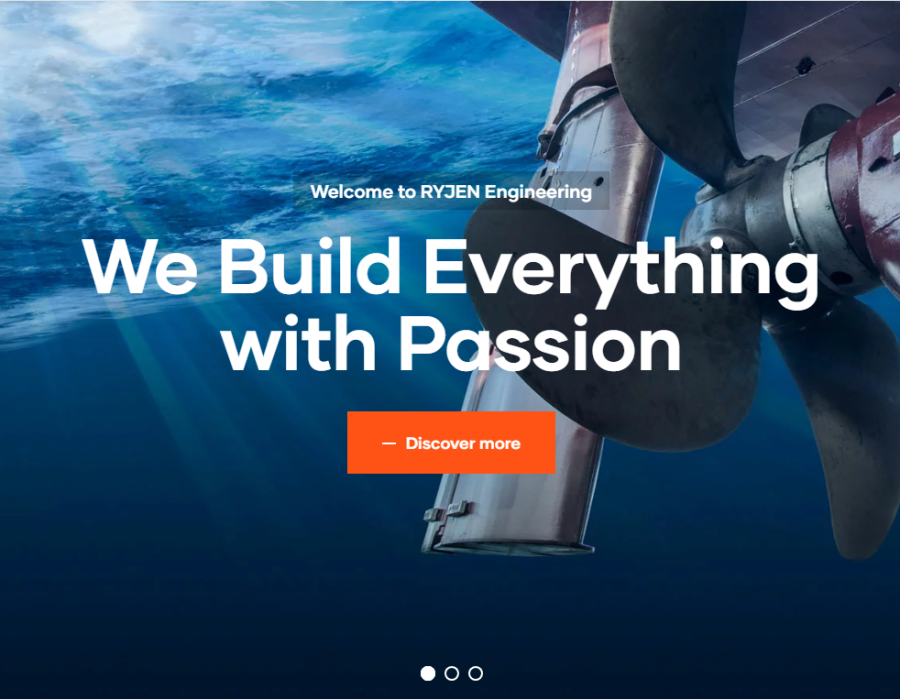Comprehensive Guide to Marine Propulsion Solutions: Powering the Future of Maritime Transport
In the ever-evolving world of maritime transportation, marine propulsion solutions are at the heart of efficient and sustainable sea travel. From commercial shipping to luxury yachts, the propulsion system of a vessel determines not only its speed and maneuverability but also its environmental impact. At Marine Propulsion Global, we specialize in providing cutting-edge marine propulsion solutions that cater to the unique needs of each vessel, ensuring optimal performance and minimal environmental footprint.
What Are Marine Propulsion Solutions?
Marine propulsion refers to the mechanisms by which a ship or boat is propelled through the water. This typically involves the conversion of energy into motion, using engines, motors, or alternative power sources like wind or solar energy. Marine propulsion solutions encompass a wide range of technologies, each designed to meet specific maritime requirements. These solutions include conventional diesel engines, gas turbines, electric propulsion systems, and hybrid solutions that combine multiple power sources.
Types of Marine Propulsion Systems
1. Conventional Diesel Engines
- Overview: Diesel engines have been the backbone of marine propulsion for decades, offering reliable and powerful performance.
- Advantages: High energy efficiency, durability, and widespread availability of diesel fuel.
- Challenges: Emissions regulations and environmental concerns have prompted the need for cleaner alternatives.
2. Gas Turbines
- Overview: Gas turbines are commonly used in naval vessels and large cruise ships, providing high-speed propulsion.
- Advantages: Lightweight, compact design, and fast response time.
- Challenges: Higher fuel consumption and operational costs compared to diesel engines.
3. Electric Propulsion Systems
- Overview: Electric propulsion systems utilize electric motors to drive the ship's propellers, powered by batteries or fuel cells.
- Advantages: Low emissions, reduced noise, and improved efficiency at lower speeds.
- Challenges: Limited energy storage capacity and higher initial costs.
4. Hybrid Propulsion Systems
- Overview: Hybrid systems combine two or more propulsion methods, such as diesel engines and electric motors, to maximize efficiency and flexibility.
- Advantages: Reduced fuel consumption, lower emissions, and the ability to switch between power sources based on operational needs.
- Challenges: Complex system integration and maintenance requirements.
5. Alternative Energy Propulsion
- Overview: With the growing emphasis on sustainability, alternative energy sources like wind, solar, and hydrogen are being explored for marine propulsion.
- Advantages: Zero emissions, renewable energy, and reduced dependence on fossil fuels.
- Challenges: Technology is still in development, and the infrastructure for widespread adoption is limited.
Choosing the Right Marine Propulsion Solution
Selecting the appropriate marine propulsion solution depends on several factors, including the size and type of the vessel, its intended use, and environmental regulations. Here are some key considerations:
1. Vessel Type and Size
- Commercial Vessels: Cargo ships, tankers, and bulk carriers typically require robust and fuel-efficient propulsion systems, often relying on diesel engines or hybrid solutions.
- Passenger Vessels: Cruise ships and ferries prioritize comfort, noise reduction, and environmental compliance, making electric and hybrid systems attractive options.
- Recreational Vessels: Yachts and leisure boats benefit from the quiet operation and flexibility of electric propulsion.
2. Operational Requirements
- Speed and Range: High-speed vessels may favor gas turbines or hybrid systems, while long-range vessels prioritize fuel efficiency and reliability.
- Maneuverability: Electric propulsion systems offer superior control and maneuverability, especially in port or shallow waters.
3. Environmental Regulations
- Emissions Standards: Stricter regulations on sulfur and nitrogen oxide emissions have led to the adoption of cleaner propulsion technologies, such as LNG (liquefied natural gas) engines and scrubbers.
- Noise Pollution: For vessels operating in sensitive marine environments, electric propulsion offers a quieter alternative to traditional engines.
Innovations in Marine Propulsion Solutions
The marine industry is witnessing a wave of innovations aimed at enhancing propulsion efficiency and reducing environmental impact. Some of the most promising developments include:
1. Fuel Cells
- Overview: Fuel cells generate electricity through a chemical reaction, often using hydrogen as a fuel source.
- Advantages: Zero emissions, high efficiency, and the potential for renewable energy integration.
- Challenges: Hydrogen storage and distribution infrastructure are still under development.
2. Autonomous Vessels
- Overview: The rise of autonomous shipping is driving the need for advanced propulsion systems that can operate efficiently without human intervention.
- Advantages: Increased safety, reduced operational costs, and the ability to optimize propulsion based on real-time data.
- Challenges: Regulatory hurdles and the need for robust cybersecurity measures.
3. Wind-Assisted Propulsion
- Overview: Modern wind-assisted propulsion technologies, such as Flettner rotors and sails, are being integrated into commercial vessels to reduce fuel consumption.
- Advantages: Significant fuel savings and reduced emissions.
- Challenges: Dependence on wind conditions and the need for retrofitting existing vessels.
The Future of Marine Propulsion
As the maritime industry continues to evolve, the demand for innovative and sustainable marine propulsion solutions will only grow. At Marine Propulsion Global, we are committed to staying at the forefront of these advancements, offering our clients the latest in propulsion technology and expert guidance on navigating the complexities of modern maritime regulations.
Our team of engineers and industry experts works closely with shipowners, operators, and builders to design and implement propulsion systems that meet the unique needs of each vessel. Whether you're looking to upgrade your existing fleet or build a new ship from the ground up, we provide comprehensive solutions that prioritize efficiency, reliability, and sustainability.
Why Choose Marine Propulsion Global?
- Expertise: With years of experience in the marine industry, we have the knowledge and expertise to deliver tailored propulsion solutions that meet your specific requirements.
- Innovation: We stay ahead of the curve by embracing the latest technologies and industry trends, ensuring that our clients benefit from cutting-edge propulsion systems.
- Sustainability: Our commitment to sustainability drives us to offer propulsion solutions that minimize environmental impact without compromising performance.
- Customer Support: From initial consultation to ongoing maintenance, we provide exceptional customer support at every stage of the process.






Comments